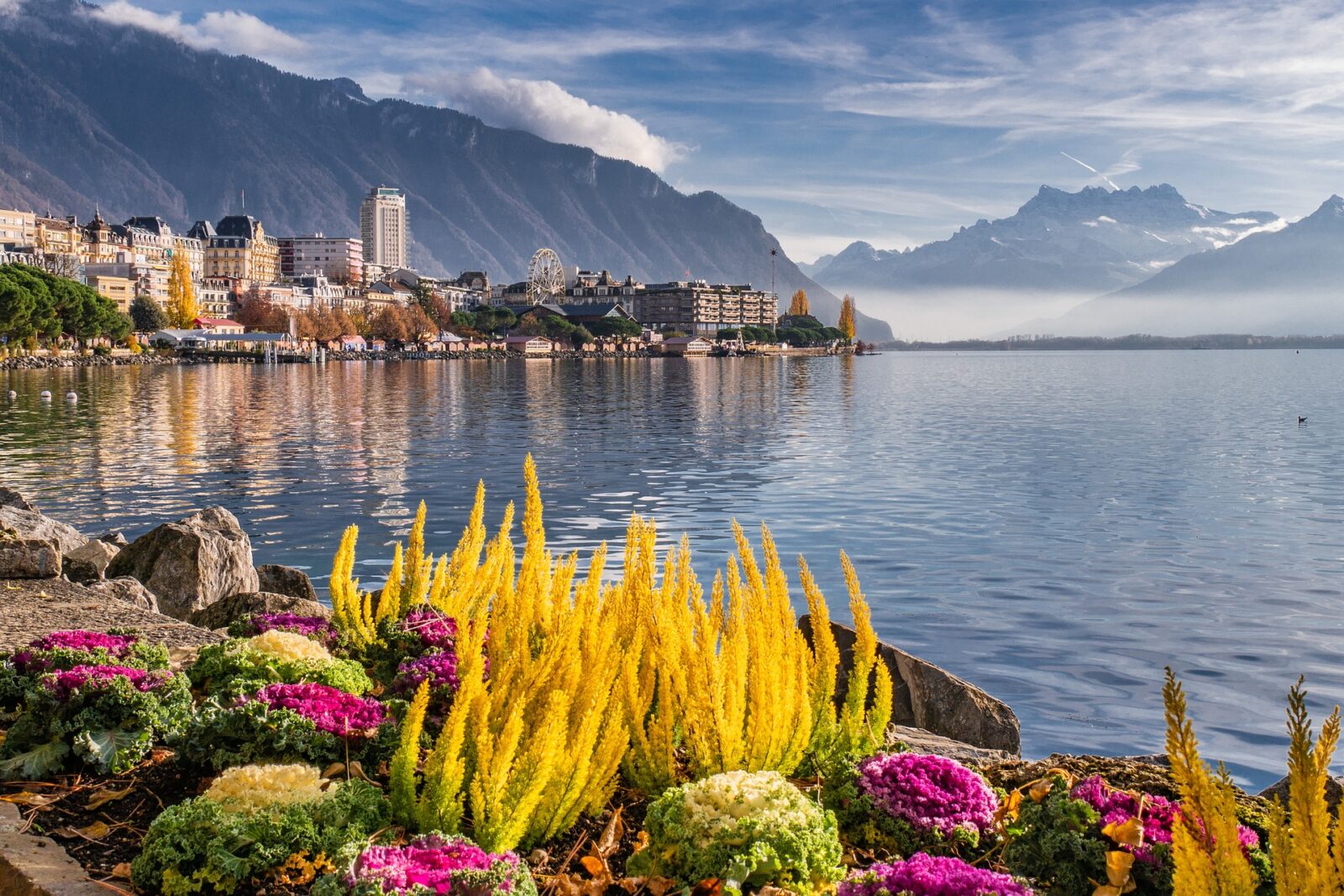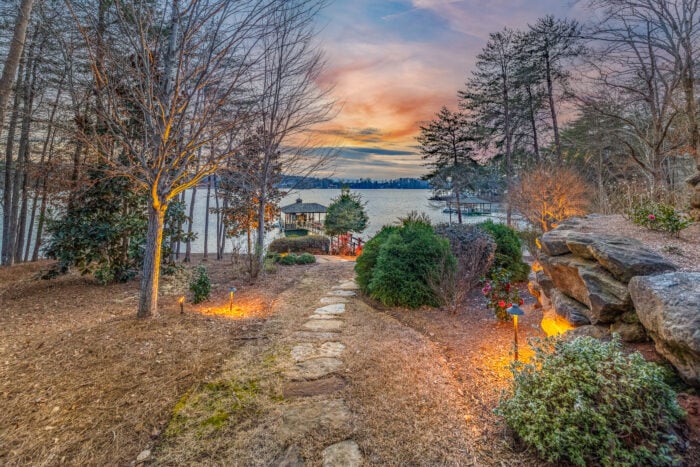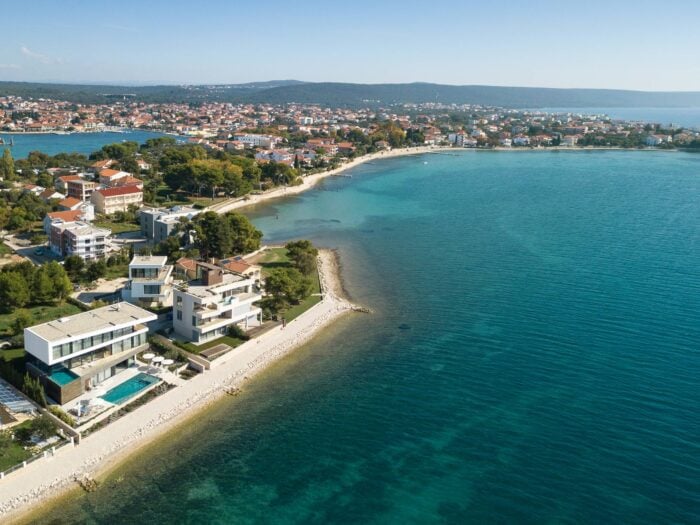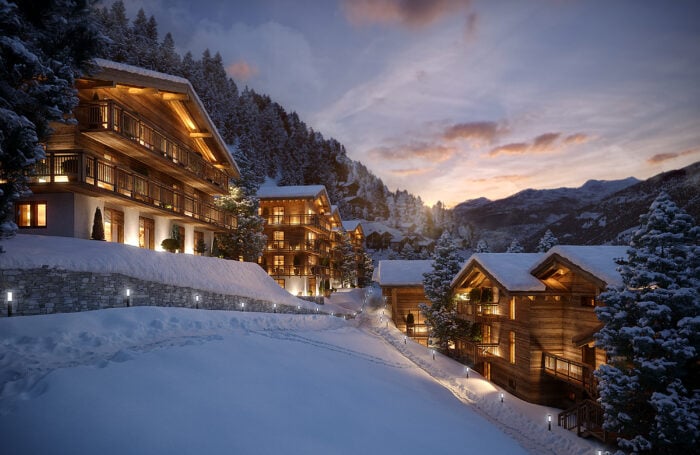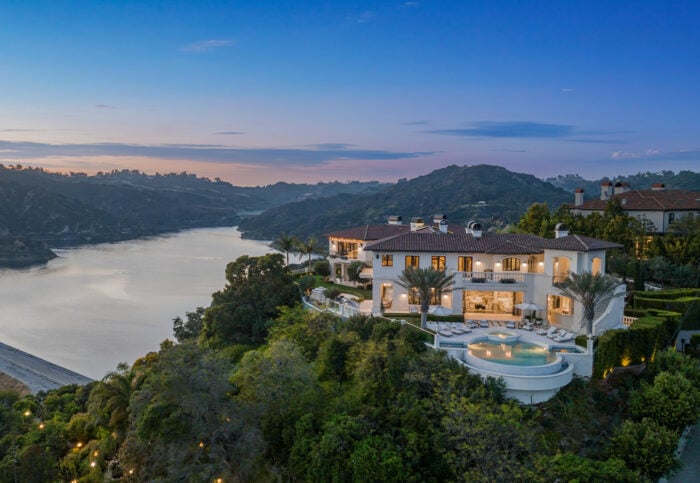France, Portugal and Switzerland consistently land on the top places in Europe to buy luxury real estate.
As social media made it easier for the younger generation to accumulate wealth, many have now turned their attention toward owning luxury properties.
Instagram and TikTok present relevant examples of why more millennials and Gen Zs are interested in buying high-end apartments or houses.
Whether or not it’s due to the proverbial fear of missing out, luxury homeownership becomes the next endeavor for social media stars.
Here are the basic details for making a down payment to a luxury property in France, Portugal and Switzerland.

When it comes to buying in France, it helps to choose a long-time broker that specializes in luxury property investments for foreigners. Groupe Mercure has handled several properties from châteaux to rural estates, including this unique manor house overlooking Combe de Savoie. (Groupe Mercure)
Buying Luxury Property In France
According to the Ministry of Economy and Finance, the reformed taxation led the country to rank No. 1 in Europe based on foreign investment projects.
Luxury properties, particularly in Paris, attract foreign investors alike partly because of a flat tax on real estate wealth.
If you plan to buy luxury homes in France, you would need to pay at least 20% of the purchase price upfront.
Some banks and lending firms might only agree to lend up to 50% of the price tag. You would still pay certain fees even if you strike a financing deal for the entire property’s amount.
Aside from state taxes, these extra expenses include:
- Frais de dossier (administration fees)
- Mortgage arrangement or origination fee
- Property valuation survey fee
- Notaire (notary) fee
Choose a long-time broker that specializes in luxury property investments for foreigners. For example, Groupe Mercure has operated in France for over 80 years.
The brokerage has transacted with different clients through 20 regional divisions across France.
As the country is known for its heritage real estate, the firm has handled several properties from châteaux to rural estates. Once you secure financing for a luxury property in France, you should be aware of the general course of a sale.
Groupe Mercure advises luxury real estate buyers to familiarize themselves with what happens before and after signing the deed of sale.

Foreign buyers must have a Número de Identificação Fiscal (NIF) before they hunt for Portugal’s luxury properties, such as the privately-owned Brejoeira Palace, just south of Monção, Portugal. (Inmobiliaria Rimontgo)
Buying Luxury Property In Portugal
Foreign buyers must have a Número de Identificação Fiscal (NIF) before they hunt for luxury properties in Portugal.
The NIF is akin to a tax identification number, which you can get at the local tax office. You may also secure an NIF when you open a bank account in Portugal.
Non-residents generally spend between 25% and 35% of a luxury property’s purchase price as a down payment. Here are the most common fees when you buy a luxury home in Portugal:
- Imposto Municipal sobre Transmissões (property transfer tax)
- Notary and land registry fees
- Stamp duty
Property transfer taxes in the country correspond to a certain amount. For example, rural properties worth more than EUR 574,323 (US $649,682) entail a 6% transfer tax.
On the other hand, you would also pay a 6% transfer tax after buying an urban residential property worth more than EUR 550,836 (US $623,113).
Land registry fees may include EUR 30 for a single-property certificate. In general, you settle land registry and notary fees at the same time. You can estimate these two expenses by calculating 0.2% to 1.2% of the property’s purchase price.
If you already own a luxury house in Portugal, you may pay EUR 16 for every property added to a land registry certificate.
The government collects stamp duty on a luxury property transaction based on 8% of the property’s registered fiscal value.
Foreign buyers should look for brokers such as Inmobiliaria Rimontgo to find out more about applicable fees.

EU and EFTA nationals must live in Switzerland if they wish to buy luxury real estate like Château de Bochat in the town of Paudex. (FGP Swiss & Alps)
Buying Luxury Property In Switzerland
Unlike in France and Portugal, strict policies await foreigners in Switzerland if they plan to buy luxury properties. A qualified foreign buyer generally pays with cash to cover 20% of the purchase price as a down payment.
Only European Union (EU) and European Free Trade Association (EFTA) nationals with a Swiss residence permit can acquire properties in the country as investments or residences.
EU and EFTA nationals must live in Switzerland if they wish to buy luxury real estate.
Holders of Swiss C permits can also buy properties as investments or residences, while Swiss B permits only allow property purchases as residences.
Other categories of non-resident foreigners must apply for a license to acquire properties. Depending on Switzerland’s cantonal authorities, the rules for non-EU and non-EFTA nationals become more complicated,
The stringent rules also led Switzerland to have a lower homeownership rate than France and Portugal.
Industry laws for Swiss tenants, however, could be another factor why more people prefer to rent than buy properties.
If you’re still determined to acquire an exclusive luxury home in Switzerland, then FGP Swiss & Alps is your best choice for a brokerage. The firm handles transactions for the most exclusive properties in the country and the French Alps.
